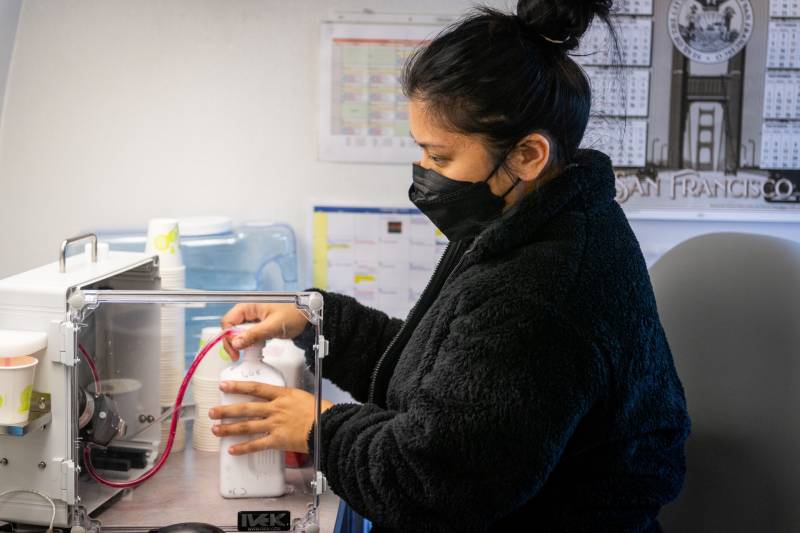The governor, who signed the legislation outlining the pay hikes last fall, has sought to make the raises contingent on “General Fund revenue availability,” an item in the current negotiations.
The law, which was set to go into effect on June 1, aims to help ease staffing shortages in the health care industry and provide a “historic wage increase” to more than 450,000 workers, mostly women and people of color, according to a statement from Durazo.
“It is clear that these workers need this to help support their families, and I appreciate health care employers that recognized this and have begun to increase wages,” Durazo said in a statement.
The Service Employees International Union, major proponent of the increases, said that it agreed to move the start date as part of negotiations with the state to ensure the wage increases go into effect “in a way that minimizes the budget impact.”
Karla Moreno, a cardiac monitor technician in Los Angeles County, said she wasn’t too worried about a potential delay. The extra income she expects to start making in July will ease financial stress for her household, which includes her mom, sister and two nephews, she said.
“To us this will be something big,” said Moreno, 35, a staffer at St. Francis Medical Center in Lynwood. “A month is just a month.”
Moreno’s hourly pay is expected to rise slightly from $20.80 to $21 in July. Her employer must increase minimum pay to $23 by mid 2026, and to $25 by mid 20-28, according to a spokeswoman with SEIU-United Healthcare Workers.
Under the law, large employers and all dialysis clinics are set to reach a $25 minimum wage by mid 2026, faster than smaller hospitals that have many low-income patients or are located in rural areas.
Moreno believes the raises will improve patient care by helping to retain employees and attract new ones to fill vacant positions. The telemetry unit where she works is often short staffed, she said, leading to “very stressful” shifts where she must monitor dozens of patients at a time.
“Ultimately the biggest thing here is there is a staffing crisis and we need staff,” said Moreno, who has worked in the industry for more than 15 years. “Healthcare is one of those things where you need to have people in order to take care of people.”

